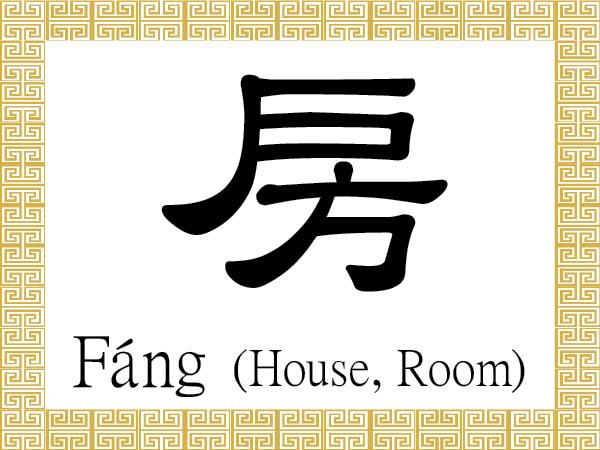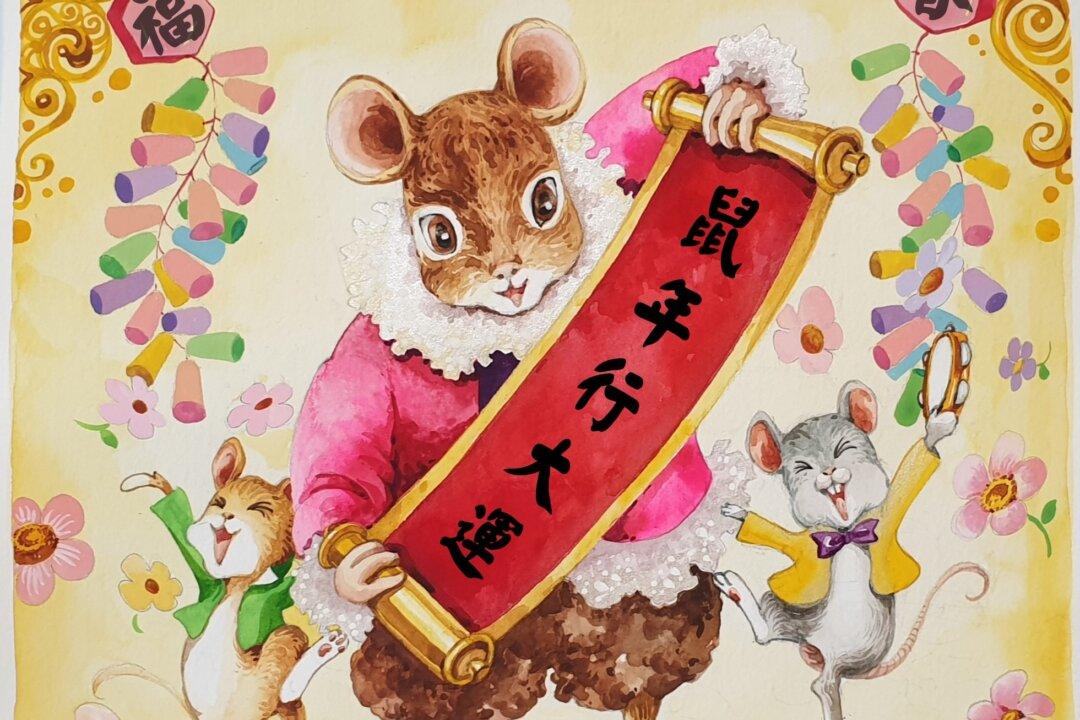The Chinese character 房 (fáng) stands for a house, an apartment, or a room.
Examples of terms that contain 房 (fáng) include 房子 (fáng zi), a house, low-rise building, or room or apartment; 房屋 (fáng wū), houses, dwellings, or buildings; 房間 (fáng jiān) or 房室 (fáng shì), a room; and 房產 (fáng chǎn), real estate, or the housing market.
房 (fáng) is used in various terms to describe different types of houses and rooms, such as 花房 (huā fáng), greenhouse or “flowers house”; 票房 (piào fáng), box office or “tickets room”; 葯房 (yào fáng), pharmacy or “medicines room”; 書房 (shū fáng), a study room, or “books room” or “writing room”; and 病房 (bìng fáng), hospital room or ward, or “illness room.”
The breast is called 乳房 (rǔ fáng), literally “room of milk” or “house of milk,” where 乳 (rǔ) stands for milk or breast.
A beehive, or honeycomb, is called 蜂房 (fēng fáng), literally “bee house,” where 蜂 (fēng) stands for bees.
The phrase 蜂房蟻穴 (fēng fáng yǐ xué) uses a beehive and an ant nest (蟻穴, yǐ xué) as an analogy to describe “each having its own territory.” 蟻 (yǐ) stands for ants while 穴 (xué) is a cave, hole, or an acupuncture point in traditional Chinese medicine.
文房四藝 (wén fáng sì yì) refers to the “Four Arts of the Study/Scholar.” 四藝 (sì yì), the “four arts,” are 琴 (qín), a seven-string Chinese zither; 棋 (qí), Go, a game of ancient Chinese origin; 書 (shū), calligraphy; and 畫 (huà), painting.
Ink, or the ink stick, along with the writing brush, ink slab or ink stone, and paper, are known as the “Four Treasures of the Study,” or 文房四寶 (wén fang sì bǎo) in Chinese, where 文房 (wén fang) refers to the study room of a traditional Chinese scholar, and 四寶 (sì bǎo) refers to “four treasures.”
These are the tools and materials deemed essential for the study and were often the themes of calligraphy, poetry, and paintings in ancient China.
房 (fang) is also a last name.房謀杜斷 (fáng móu dù duàn) refers to two famous chancellors who served Emperor Taizong of the Tang Dynasty: Fang Xuanling (房玄齡) and Du Ruhui (杜如晦).
Chancellor Du’s keen judgment and decisiveness (斷, duàn) perfectly complemented chancellor Fang’s excellent strategies and plans (謀, móu).
The two chancellors’ harmonious cooperation and appreciation for each other’s talents became a paradigm for teamwork and is the origin of this idiom.




